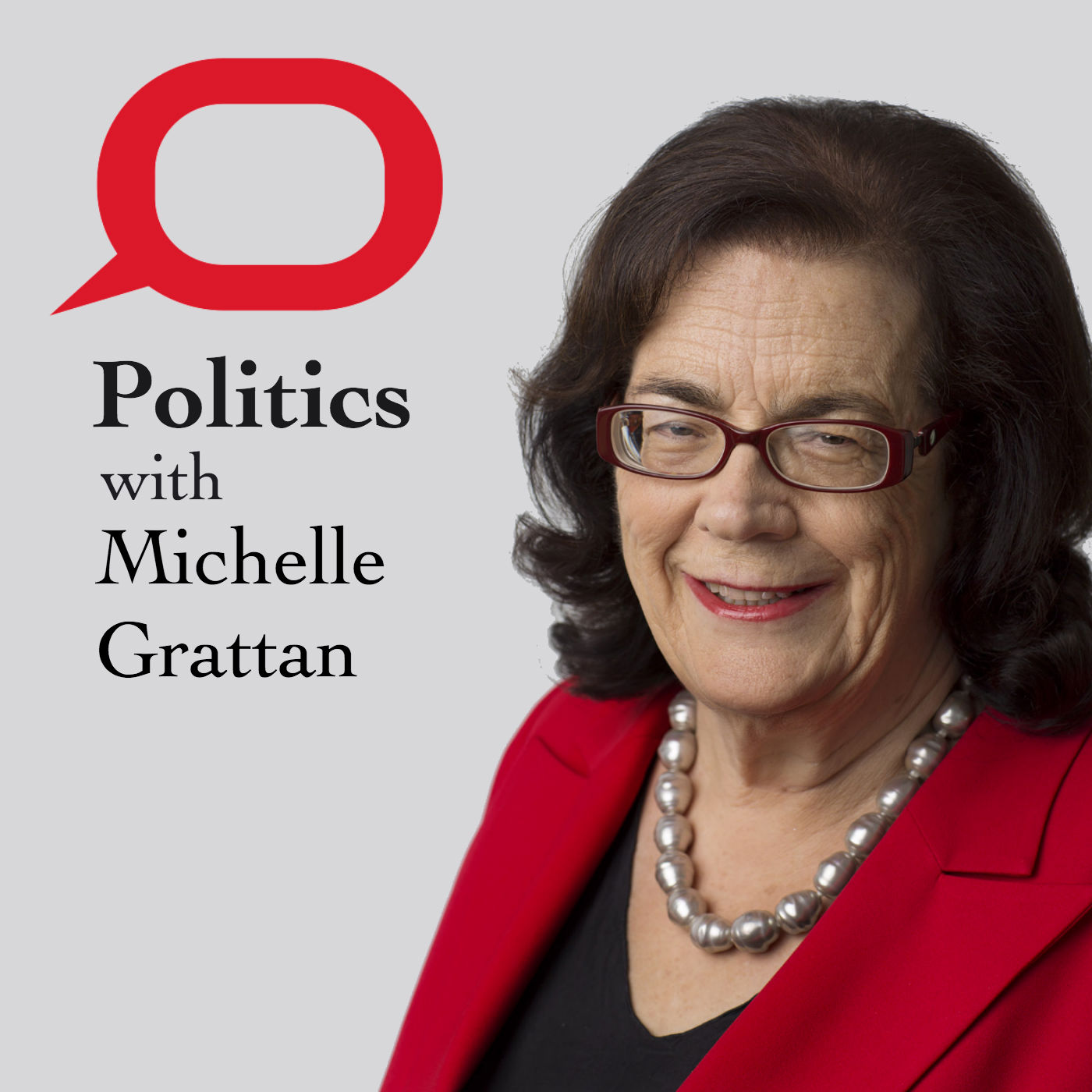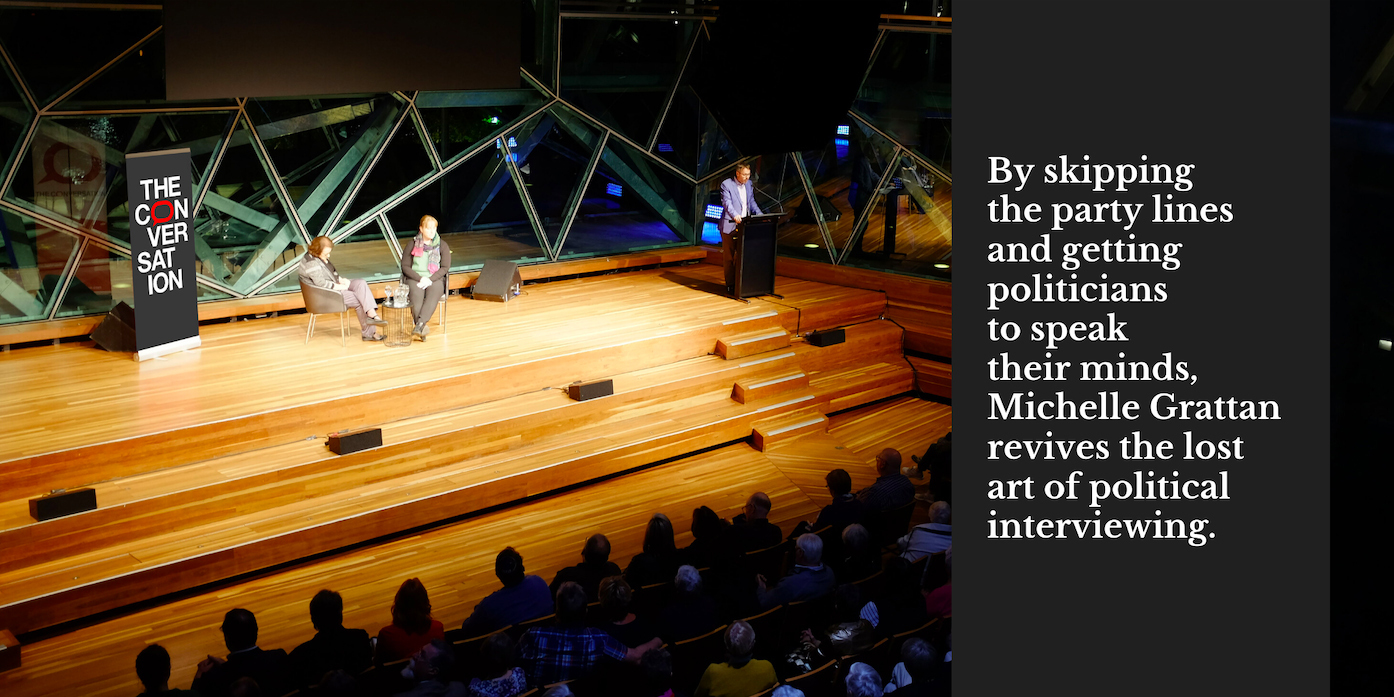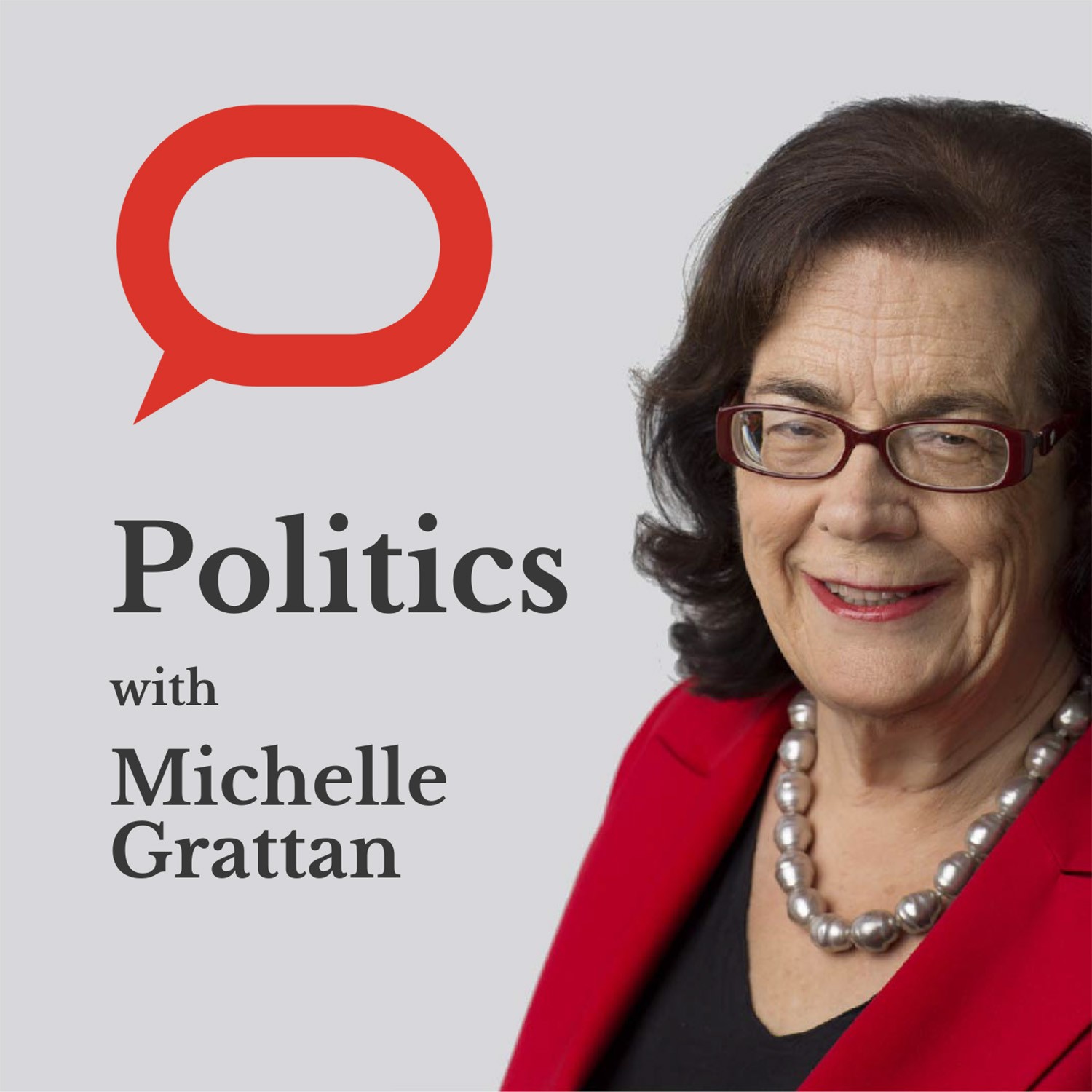Episodes

Wednesday Apr 20, 2016
Sarah Ferguson on The Killing Season uncut
Wednesday Apr 20, 2016
Wednesday Apr 20, 2016
In 2015, the ABC aired a gripping documentary series covering the tumultuous Rudd-Gillard era. This week, the series’ writer and interviewer Sarah Ferguson has released a book developed from the documentary.
Ferguson tells Michelle Grattan she longed for a single villain or a single narrative that she could pursue to the ends of the earth.
The widely acclaimed journalist talks about the difficulties of getting past the defensive mechanisms of Kevin Rudd and Julia Gillard, both expert media operators, during her interviews.
“What nobody is prepared for is what happens over hours and hours of interviews. As we know, our politicians are highly trained in answering, not answering questions. Delivering messages, delivering lines. But none of them are prepared for what happens over ten hours,” she says.
“You can’t consistently tell a story that is not entirely true or is a version of a story or is shaped to suit you over a long period of time. Eventually inconsistencies, if there are any, will creep in. You can’t maintain the facade you use in a studio interview over ten hours.”
Ferguson also discusses Bill Shorten’s reluctance to participate in the documentary and to keep himself out of the story.
“He just wants to step away from the centre of the events and remain in the cloisters, underneath the arch, half in shadow,” she says.

Tuesday Apr 19, 2016
Angus Taylor on cities and digital transformation
Tuesday Apr 19, 2016
Tuesday Apr 19, 2016
In his ministerial reshuffle earlier this year, Malcolm Turnbull made Angus Taylor, an up-and-coming Liberal MP, the assistant minister for cities and digital transformation.
Taylor tells Michelle Grattan there needs to be agreement across all three levels of government to meet the challenges of jobs growth, transport and housing affordability faced by the nation’s cities.
“We have already said we’re going to use the mechanism of “city deals”, which is an agreement across federal, state and local governments on a strategy for each of our individual cities, recognising that no two solutions will be the same.”
Taylor also says Australia will need to find “innovative ways of financing increased investment in our cities”.
“We won’t be able to finance the very significant investments required in our cities just on budget. We’ll have to look off the budget. We’ll have to look to use our balance sheet,” he says.

Wednesday Apr 13, 2016
Hugh White on Turnbull’s China visit
Wednesday Apr 13, 2016
Wednesday Apr 13, 2016
Malcolm Turnbull will visit China this week in his first trip there as Prime Minister. The two-day trip, including Shanghai and Beijing, will juggle trade and political issues. ANU Professor of Strategic Studies Hugh White tells Michelle Grattan that Turnbull will be primarily focused on the economic agenda.
“Turnbull is one of those who remain bullish about China. He thinks its economic prospects remain bright and he sees it as the principal source of economic opportunities for Australia over the next few years and indeed decades,” White says.
White believes Turnbull is downplaying the strategic challenges Australia faces in its relationship with China in an era in which US primacy will no longer remain uncontested.
“If we want to remain a military middle power in an Asian century, in which we can no longer assume that the Americans are going to be the dominant player, then we are going to have to spend a higher proportion of our GDP on defence than we have,” he says.
He suggests defence spending needs to rise to 3.5% - 4% of GDP. At present it is just under 2%.

Thursday Apr 07, 2016
Peter Whish-Wilson on his experience in banking and the need for a royal commission
Thursday Apr 07, 2016
Thursday Apr 07, 2016
The global scandal surrounding the release of the Panama papers and Malcolm Turnbull’s criticism of Australian banks have put the spotlight on the often murky world of banking and finance. Greens' finance spokesman Peter Whish-Wilson, who had a pre-parliamentary career on Wall Street, tells Michelle Grattan one reason he walked away from the banking industry was because of its culture.
“You’re only as good as your last sale. I think the culture of any organisation starts at the top and the way they incentivise their employees – from the CEO down – is the root cause of the problem,” he says.
Whish-Wilson argues that a royal commission into the finance and banking sector is what is needed to deal with its pervasive cultural problems. He also says the Australian Securities and Investments Commission and the Australian Tax Office need greater powers to deal with the tax-avoiding behaviour revealed by the release of the Panama papers.

Wednesday Apr 06, 2016
Glenn Lazarus on the government’s industrial legislation
Wednesday Apr 06, 2016
Wednesday Apr 06, 2016
Senators will return to Canberra later this month with the expectation that they will give final consideration to the government’s industrial legislation - unless they decide to refuse to consider it. Glenn Lazarus, a crossbencher whose approval the government may need if the bills are to have any hope of passing, tells Michelle Grattan he will not be bullied or blackmailed into giving his support.
Lazarus says that when he asked Malcolm Turnbull to turn the Australian Building and Construction Commission into a national corruption watchdog for all industries, the Prime Minister gave him a blank look.
The former Palmer United Party senator also says that he has become a better politician as a result of leaving the PUP and that no ministers had visited his office before his decision to walk away from the party.

Friday Apr 01, 2016
George Wright on Labor’s chances of winning the election
Friday Apr 01, 2016
Friday Apr 01, 2016
While Labor goes into the coming election as underdog, the party’s strategy to win government will capitalise on what it sees as its competitive advantages. From Labor’s national secretariat in Canberra, campaign director George Wright tells Michelle Grattan the party will be working hard to increase its direct contact with voters.
“We worked very hard at that in 2013 and we will work even harder on that in 2016,” he says.
Whether or not the government calls a July 2 double-dissolution election, Wright is ready and says Labor led by Bill Shorten can win.
“The party that he leads is now in a very competitive position against someone who everyone was predicting would wipe the floor with everyone. I think people who underestimate Bill’s capacity are doing so at their own peril.”
Listing Labor’s policy strengths, Wright nominates health, education, housing affordability and the economy.
“I think a lot of work has gone into having a cogent and credible position on the budget and I would strongly argue that right now we have a stronger policy position than the government,” he says.

Wednesday Mar 16, 2016
Ricky Muir’s fight to stay in the Senate
Wednesday Mar 16, 2016
Wednesday Mar 16, 2016
The Australian Motoring Enthusiast Party’s Ricky Muir this week made an unsuccessful last roll of the dice to try to delay the government’s Senate voting reform legislation. The bill will prevent almost all “micro” players being elected to the Senate, and facilitate the government driving out most of the current bunch if it holds a double-dissolution election.
But Muir tells Michelle Grattan the reforms have not been properly scrutinised and the process to approve them has been a sham. While he acknowledged the need for some reform, he believes the government is scapegoating him for being elected on 0.51% of the primary vote.
“Do I appreciate that some kind of changes could happen? Absolutely. But it needs to be a long, thought-out, thorough process with proper public consultation,” he says.
Muir, who was reticent about speaking out in public in his first months in the Senate, is now fiesty. He is taking a high-profile and ready to fight for his political reputation at the election.

Thursday Mar 10, 2016
Tony Windsor on his bid for New England
Thursday Mar 10, 2016
Thursday Mar 10, 2016
In what promises to be one of the toughest contests at the election, former independent MP Tony Windsor will try to retake the seat of New England from Deputy Prime Minister Barnaby Joyce. Windsor tells Michelle Grattan he believes the seat is winnable.
“I’m not naive in politics, I know there will be an enormous amount of money thrown at this but my campaign will be based on people – and people power, if it gets positioned correctly, can actually do a tremendous amount,” he says.
Windsor pitches his campaign as a policy battle to be fought on local issues that have national prominence: climate change, the NBN, and the Shenhua mine – to name a few.

Wednesday Mar 02, 2016
Politics podcast: Mathias Cormann on Senate reform
Wednesday Mar 02, 2016
Wednesday Mar 02, 2016
Following recommendations from the joint standing committee on electoral matters, the government has amended its Senate reform bill to include provision for optional preferential voting “below the line” as well as “above the line”. Special Minister of State Mathias Cormann explains the details of the changes and says the bill “empowers the Australian people to determine what happens to their votes and their preferences”.
“What it does is it will help ensure that the result at the next Senate election and any subsequent Senate election reflects the will of the people.”

Wednesday Feb 24, 2016
Politics podcast: senator David Leyonhjelm on Malcolm Turnbull
Wednesday Feb 24, 2016
Wednesday Feb 24, 2016

